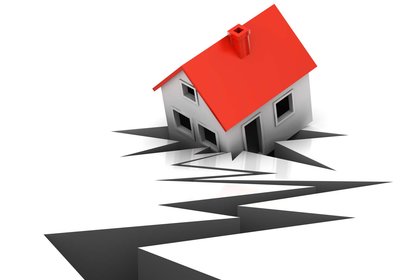There are some initiatives underway to bring more affordable housing to Chicago’s North Shore communities, but do they stand a chance of succeeding?
Chicago’s North Shore has long been a bastion of upper-class living, but efforts are underway to make those affluent communities more open to lower income residents – especially the nurses, teachers and police officers who work there; and though progress has been slow, there has nonetheless been progress.
According to a new Chicago Tribune story, the push for affordable North Shore housing began 10 years ago, when Illinois adopted the Affordable Housing Planning and Appeal Act, which not only appealed to wealthier communities to pursue affordable housing initiatives, but also spotlighted the 49 communities in Illinois that were unaffordable for most Illinoisans, and Winnetka, Wilmette, Highland Park, Deerfield, Northbrook and Lake Forest all made the list.
“A Drop in the Bucket” For Affordable North Shore Living
One thing the Illinois state measure did not do was compel any communities to act. Though it did, as the Tribune put it, place the issue of unequal housing “under a microscope,” few of the North Shore communities have enacted any major changes to their housing policies.
The end result thus far, said Gail Schechter, executive director of Winnetka-based Open Communities, has been no more than “a drop in a bucket.”
“The economy is bouncing back, but a lot of these communities are still catering to the rich,” she said in the Tribune article.
The two main problems, said Richard Koenig of the Housing Opportunity Development Corporation, is scarcity and cost. Undeveloped land is very scarce in the land-locked North Shore communities, and the existing properties command a high price tag, he explained to the Tribune.
Also problematic is how North Shore residents perceive “affordable housing,” with many equating such initiatives with Chicago’s infamous public housing projects.
“You can’t just blame everything on affordable housing,” Schechter said. “I hear a lot of people say ‘I’m not against affordable housing, I just don’t want it here,'” Koenig said. “If I had a nickel for every time I heard that, I could build more affordable housing.”
Measurable Progress
But still, the situation is not an entirely negative one. Highland Park, for example, has been far and away the most proactive of the North Shore communities, creating Illinois’ first community land trust in 2003. Since then, the community has introduced 44 affordable homes and assisted 50 households.
Similarly, the Lake Forest City Council is aiming to make 15 percent of its new housing developments affordable over the next decade, which would come out to 50-60 affordable units by 2020. And Northbrook established an affordable housing plan in 2005, and is in the process of setting its own goals.
The one area though where affordable housing has not progressed is Winnetka, where intense public opposition quashed housing efforts in 2011.
However, as the Tribune points out, 10 years may not be adequate time to judge the impact of Illinois’ affordable housing law. And Adam Gross, the director of regional affordable housing initiative at Business and Professional People for the Public Interest in Chicago, said the recent housing downturn must also be considered, and the fact that little housing construction – to say anything of affordable housing construction – has taken place.
“It’s hard to assess the act’s effectiveness in a time when little or no housing is being built,” Gross said.
